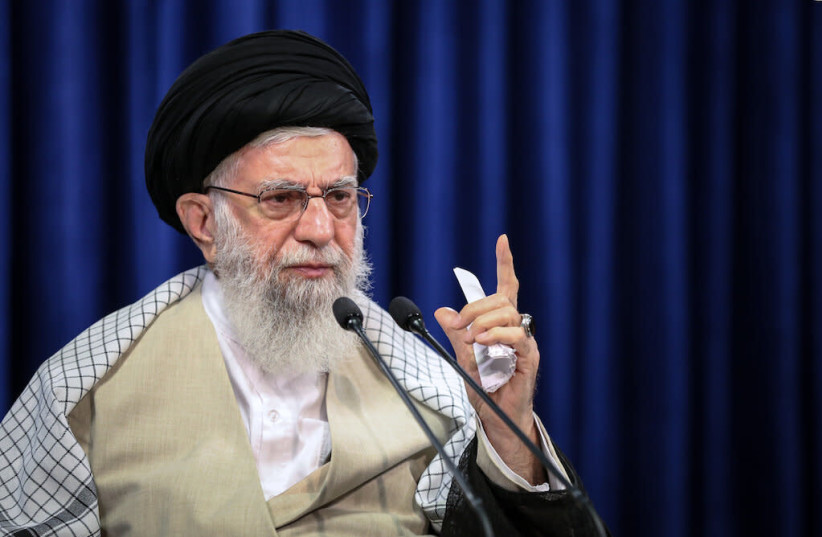Iranian Supreme Leader Ayatollah Ali Khamenei said on Saturday that Basij militia forces have sacrificed their lives in what he called riots, the wave of protests sparked by the death in custody of a young Iranian Kurdish woman in September.
The protests that began after the death of 22-year-old Mahsa Amini while in the custody of Iran's morality police on September 16 have turned into one of the boldest challenges to the clerical leadership since the 1979 Islamic Revolution.
Challenging the Islamic Republic’s legitimacy, protesters from all walks of life have burned pictures of Khamenei and called for the downfall of the Islamic Republic.
The Basij forces, affiliated with the country's elite Revolutionary Guards, have been at the forefront of the state crackdown on the unrest in the past weeks.
"They have sacrificed their lives to protect people from rioters ... the presence of Basij shows that the Islamic Revolution is alive," Khamenei said in a televised speech.

Iran's clerical establishment has blamed the country's foreign enemies, particularly the United States, and their agents for the unrest.
The activist news agency HRANA said that as of Friday 448 protesters have been killed, including 63 children. It said 57 members of the security forces have also been killed, and an estimated 18,170 people arrested.
Authorities have not provided a death toll for protesters, but a senior official on Thursday said 50 police had been killed in the unrest.
Iran's hardline judiciary has sentenced at least six protesters to death and thousands have been indicted for their role in the unrest, according to officials.
Iran's national soccer team made headlines
After many Iranian fans on social media accused the national soccer team of siding with the violent state crackdown on the unrest, Khamenei applauded the squad for their win in their World Cup match against Wales on Friday.
"Yesterday, "Yesterday, Team Melli (the National Team) made our people happy. May God make them happy," said Khamenei.
The soccer team sang along to the Islamic Republic's national anthem before Friday's match, unlike in their first match against England in the opening game earlier this week when they chose not to sing, in apparent support for protesters at home.
